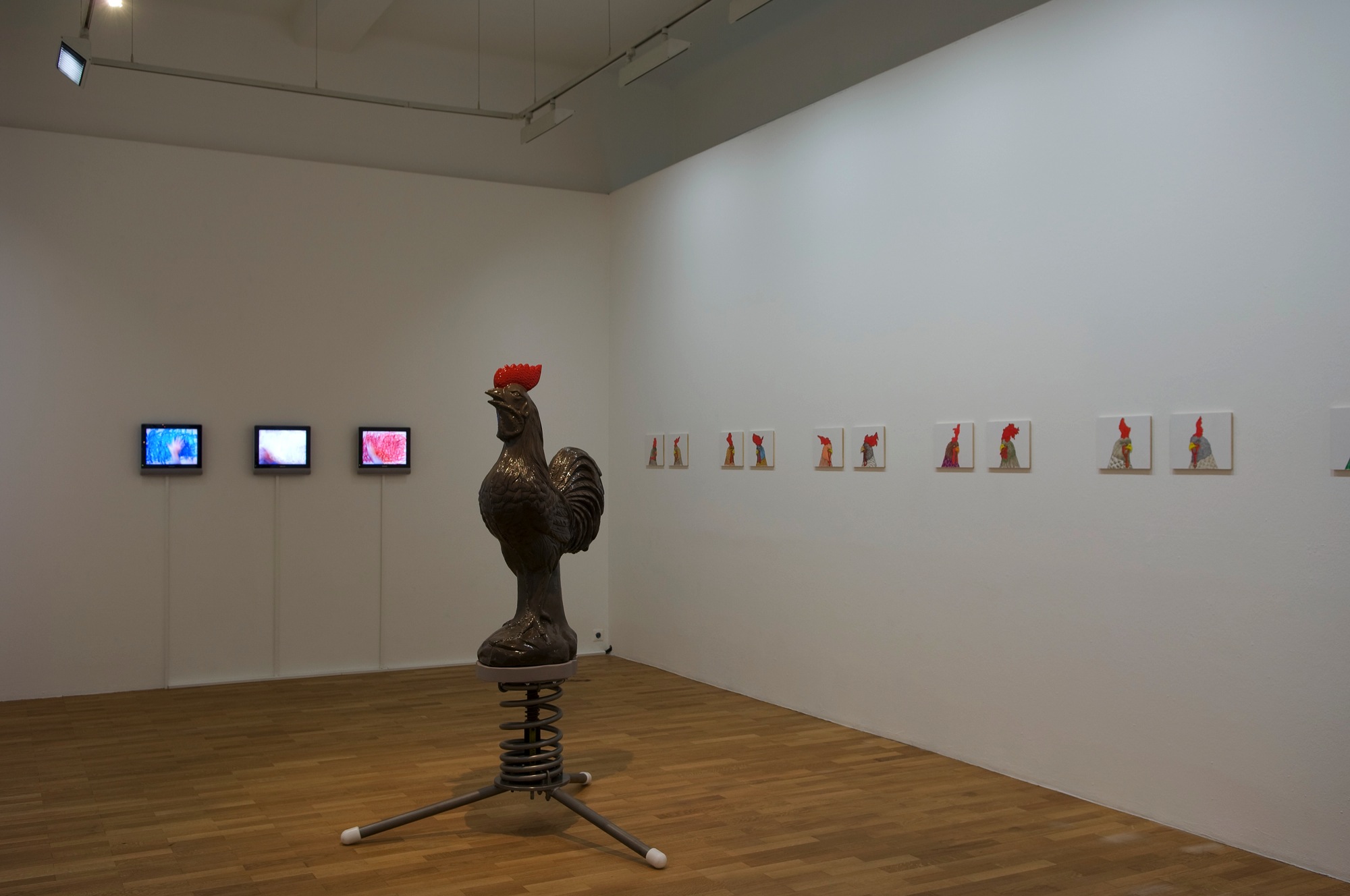
Philippe Jacq
The French artist Philippe Jacq, born 1971 in Algeria and currently living in the South of France, makes no mystery of his conflicting relationship to identity in general, and his own in particular. One of his recent videos, the triptych Philippe Jacq, né à Oran en Algérie (Philippe Jacq, born in Oran in Algeria), is a striking illustration of the ambivalence that characterizes his work. It shows an affirmative gesture - the artist repeatedly writing down his name and place of birth - resulting in the negation of "identity", which eventually gives way to three single colour fields - blue, white, and red - evoking the Tricolore, the French national flag.
For someone like Jacq, who originates from Algeria yet belongs to France and is therefore in constant search of his true identity, it seems hardly surprising that the affirmation of patriotic symbols should remain a sensitive matter. Jacq's recent work, which draws on the artist's childhood memories, questions the idea of national identity in a humoristic and playful manner. In Missiles patriotes (Patriotic Missiles), he thus transforms the emblems of various countries into weapons of mass destruction. In these deceitfully innocent colour drawings, an American hamburger, a Russian doll, a Chinese dragon, or a German eagle turn into rockets whose sole purpose is total annihilation. In the same vein, the French emblem, le coq, is represented as a bearer of destruction. But for all the symbolism, it remains essentially unclear whether spectators are witnessing a scathing critique or a tongue-in-cheek parody of national identity.For his latest exhibition, Philippe Jacq has invested the Casino's Project Room with yet another version of the French rooster, which, in the country's collective consciousness, embodies the key values of rural France: pride, obstinacy, courage, and industriousness. Yet, conversely, the rooster also stands for insensitivity and arrogance, and despite his crown, looks somewhat grotesque. It is this inherent ambivalence of the symbol, which has captured Philippe Jacq's imagination. In the work at Casino Luxembourg, the proud cock transforms into a spring rider as commonly found on children's playgrounds. Is the artist suggesting that the notion of national appurtenance is no more than a game - a mechanism whose impetus we merely follow? The three stuffed roosters hanging from the ceiling in the Project Room and slowly spinning around their own axis seem to corroborate this impression...
Partners
In the framework of Prix d'art Robert Schuman - Best of.